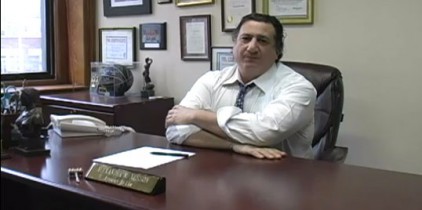There is a lot of different options where there can be an adoption, and where a child can become free for an adoption if the parents both sign a Voluntary Adoption Surrender’s or if Department of Children and Families (DCF) has petitioned the Court to terminate the parents right to consent to their child’s adoption.
If you adopt a child, you are permanently assuming all the rights and responsibilities of the child’s parent. There can be an “Open Adoption Agreement” as well, which allows the parents the ability to have some contact with the child; whether it is visits or pictures and postcards or phone calls.
There is something called a “Caregiver’s Authorization”, which a parent can care for a child and if the child is living with a non-parent i.e., a grandparent, aunt or another adult, the parent can file a Caregiver’s Authorization Affidavit with the parent keeps custody of the child and names the non-parent as the caregiver; given that caregiver and the parent legal power to make healthcare and educational decisions for the child.
They would both sign the Caregiver’s Affidavit in front of two (2) people and notary public; which can be good for up to two (2) years; and there is not a need to go to court for that.
Foster Care is where a child is placed in foster care after being removed from the child’s biological home; usually due to abuse or neglect or significant dangerous conditions. DCF can provide the legal decision making, but the foster parent is responsible for the day to day care of the child. The disadvantages that the foster parent has limited legal decision making, but the advantages are that the Department can help with services and costs that are associated. There is supposed to be a look to kinship first; although, DCF has severe requirements.
A guardian of a minor is where the guardian has similar powers and responsibilities that a parent might have regarding the child’s support, care, education, health, welfare and is able to make the day to day decisions about the child, unless the Court deems otherwise. The parents can visit the child; usually at the discretion of the guardian, unless there is a specific court order. There can be temporary or permanent guardianship, but the parents can move to vacate the guardianship if the court determines that the parents are fit or capable.
There is also a “Temporary Agent Authorization”, which is a person that a parent has appointed to carry out responsibilities concerning the care/custody and property of the minor child. Where the parent or the guardian can appoint the temporary agent in writing and it has to be signed in front of two witnesses and the Temporary Agent must also accept the appointment in writing and it is valid for sixty (60) days, but a parent or guardian can terminate or end as well as change the appointed prior to that, but they must notify all interested parties if that occurs and no court approval is necessary for Temporary Agent Authorization.
There is some real advantages and disadvantages to many of these, and it is important to look at what is in the child’s best interest.
In today’s world, more family members and concerned adults are taking more responsibilities for grandchildren, nieces, nephews and others. It is important to find the best fit for how to do that legally and the benefits and risks.







